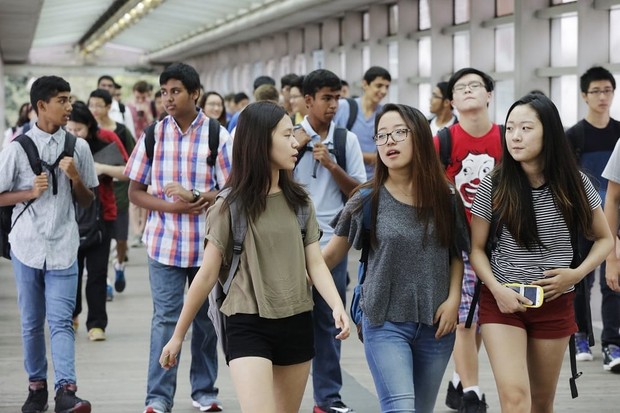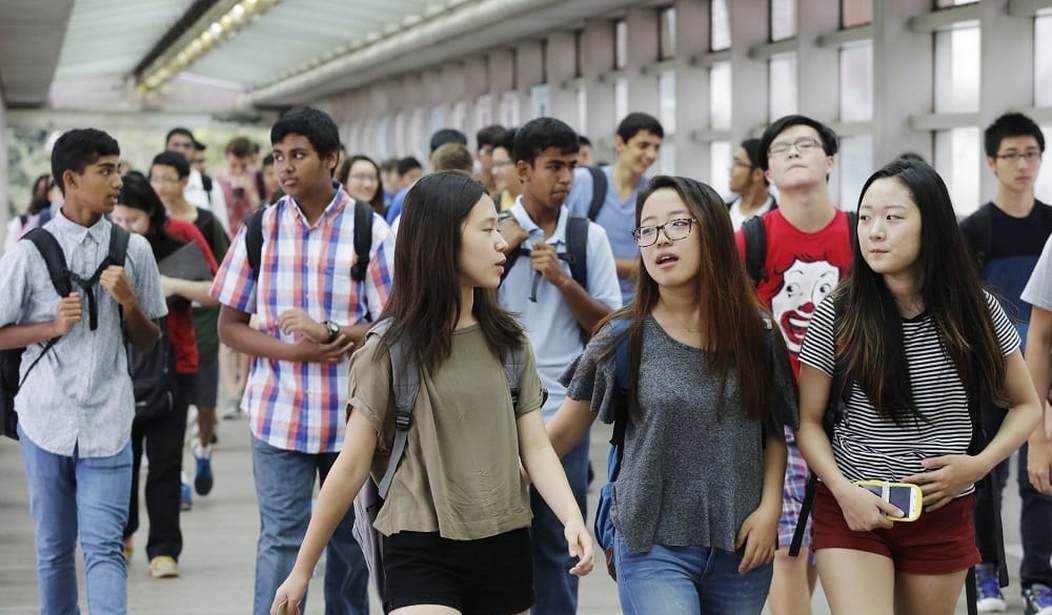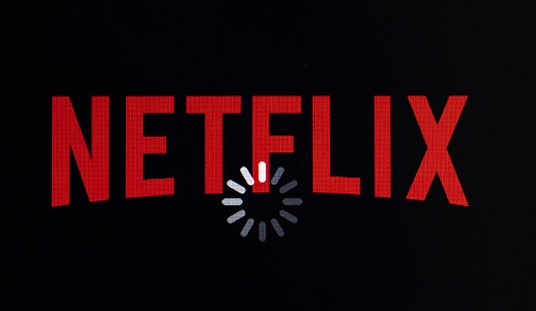
FILE – In this Sept. 9, 2015 file photo, students arrive for the first day of school at Stuyvesant High School in New York. A push to diversify New York City’s most elite public high schools is facing a backlash from the group that makes up most of the schools’ current student bodies: Asian-Americans. (AP Photo/Mark Lennihan, File)
Michael Wang should have been a shoo-in for admission to an elite university. He was second in his high school class of 1,002 students and maxed the ACT. He was musically accomplished; he was selected to sing at Barack Obama’s inauguration and got third place in a national piano contest. He was recognized as one of the top mathematics students in the nation and was a finalist in several national debate competetions. But when he was rejected by six of seven Ivy League schools, he began to get suspicious and classmates and acquaintances who had far less impressive credentials were admitted. Edward Blum, of the Project on Fair Representation, heard of Wang’s case and became intrigued. Blum has made a career of fighting racial preference and he sensed what might be a work. After he found over a dozen Asian-American students with similar stories, he filed a lawsuit alleging that Harvard University was engaged in a pattern of racial discrimination in its admissions process:
- “holistic admissions” is actually a cover to practice racial discrimination
- Asian-Americans are discriminated against in admissions – meaning, lower admissions rates controlling for qualifications. In their words, “an Asian-American with a 25% chance of admission would have a 35% chance if he were white, a 75% chance if he were Hispanic, and a 95% chance if he were African American.”
- the % of Asian-Americans in Harvard’s student class has stayed the same (~20%) despite increases in the qualifications of Asians, suggesting a strict racial quota.
While most of Harvard’s admission factors, like academics and athletics, are easily quantifiable, the university has come up with psychobabble and mumbo-jumbo to justify this outcome. Somhow Asian-American students seem to do very poorly in the intangibles:
The personal rating “summarizes the applicant’s personal qualities based on all aspects of the application, including essays, letters of recommendation, the alumni interview report, personal and family hardship, and any other relevant information in the application.”
Characteristics include “applicant’s humor, sensitivity, grit, leadership, integrity, helpfulness, courage, kindness,” whether the person is an “attractive person to be with” and is “widely respected.”
The lawsuit survived challenges and today the US Department of Justice joined the case on behalf of Michael Wang and his friends.
The Justice Department lent its support on Thursday to students who are suing Harvard University over affirmative action policies that they claim discriminate against Asian-American applicants, in a case that could have far-reaching consequences for the use of affirmative action in college admissions.
In a so-called statement of interest, the department supported the claims of the plaintiffs, a group of Asian-Americans rejected by Harvard. They contend that Harvard has systematically discriminated against them by artificially capping the number of qualified Asian-Americans from attending the school to advance less qualified students of other races.
“Harvard has failed to carry its demanding burden to show that its use of race does not inflict unlawful racial discrimination on Asian-Americans,” the Justice Department said in its filing.
The filing said that Harvard “uses a vague ‘personal rating’ that harms Asian-American applicants’ chances for admission and may be infected with racial bias; engages in unlawful racial balancing; and has never seriously considered race-neutral alternatives in its more than 45 years of using race to make admissions decisions.”
Given the history of affirmative action litigation it is really hard to see how this survives. It is no longer an argument for reparations. Nor is it even an argument for “diversity” as has been previously understood. Harvard isn’t saying it wants Asians in relative proportion to their population, they want fewer Asians.
Harvard and affirmative action are caught in a bind in this. For the first time, minority students are alleging that they are harmed by a race based admissions process. If the case goes to trial, it is hard to believe the plaintiffs will not prevail. If there are appeals, this case will end up before a Supreme Court that was already falling out of love with affirmative action but which will now have Justice Brett Kavanaugh instead of Anthony Kennedy.
My guess is that at some point Harvard makes a settlement with the plaintiffs rather than risking the whole racial spoils system. But who knows what a progressive university peopled by diversity specialists will decide.













Join the conversation as a VIP Member